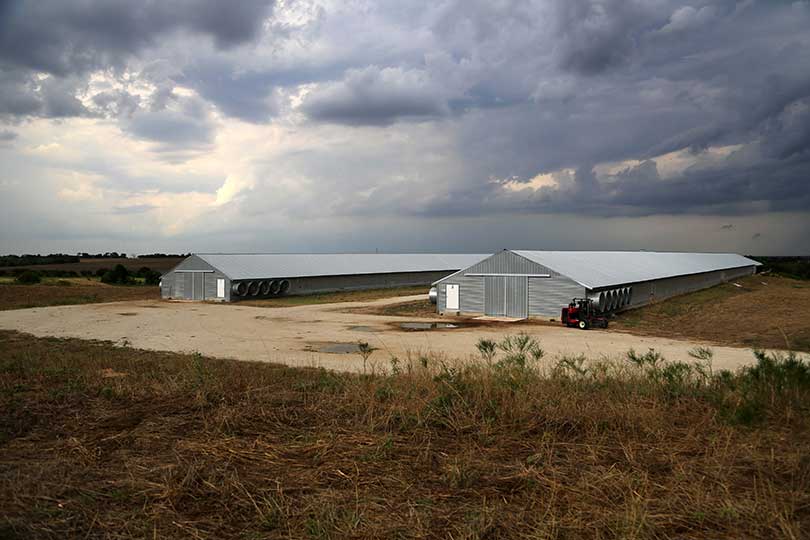The Texas Animal Health Commission (TAHC) strongly encourages Texas poultry owners and producers to take steps to protect their flocks from highly pathogenic avian influenza (HPAI), as cases rise across the United States.
In January 2022, HPAI was first detected in a wild bird in South Carolina. Since that time, the United States Department of Agriculture’s (USDA) Animal and Plant Health Inspection Service (APHIS) confirmed HPAI in commercial poultry, backyard fowl or wild bird populations in 22 states.
HPAI is a highly contagious viral disease that can infect chickens, turkeys and other birds and can cause severe illness and/or sudden death.
“While avian influenza has not been detected in Texas, we see the disease as a potential and real threat to Texas poultry,” Dr. Andy Schwartz, TAHC executive director and state veterinarian, said. “Our best defense is for all poultry owners to join together in the effort to prevent disease by following strict biosecurity practices.”
Biosecurity refers to practices that prevent possible contamination or disease spread. For poultry, biosecurity practices include:
- preventing contact with wild birds, especially wild waterfowl;
- restricting unauthorized people and vehicles;
- covering and enclosing outdoor feeding areas, and covering stored feed;
- cleaning and disinfecting any vehicle tires or equipment that has been on other farms or other locations where there is poultry or wild birds;
- wearing clean clothing, boots and shoes when in contact with your flock; and
- isolating new birds.
“Protecting domestic birds from wild birds is a key practice in mitigating the spread of this disease,” Schwartz said. “Throughout the current HPAI outbreak, many states have detected HPAI in wild migratory fowl. Because these birds follow migratory patterns, it is important for Texas poultry owners and producers to be aware of recent confirmations in states located in the Central Flyway, such as South Dakota, Nebraska and Kansas, and vigilantly monitoring birds for any signs of illness.”
Symptoms of HPAI include:
- coughing, sneezing, nasal discharge, and other signs of respiratory distress;
- lack of energy and appetite;
- decreased water consumption;
- decreased egg production and/or soft-shelled, misshapen eggs;
- incoordination;
- and diarrhea.
Avian influenza can also cause sudden death in birds even if they are not showing other symptoms.
If symptoms are observed in your birds, immediately contact your veterinarian. If you do not have a regular veterinarian, contact the TAHC at 1-800-550-8242.
According to the U.S. Centers for Disease Control and Prevention, the recent HPAI detections do not present an immediate public health concern. No human cases of these avian influenza viruses have been detected in the United States. Avian influenza does not present a food safety risk. Poultry and eggs are safe to eat when handled and cooked properly.
As part of existing avian influenza response plans, federal and state partners are working jointly on additional surveillance and testing in areas around the affected flock. The United States has the strongest avian influenza surveillance program in the world, and USDA is working with its partners to actively look for the disease in commercial poultry operations, live bird markets and in migratory wild bird populations.
For more information about HPAI, including current status of the confirmed cases in other states, as well as more information about biosecurity for your flock, go to the TAHC’s poultry health webpage at tahc.texas.gov/animal_health/poultry.

